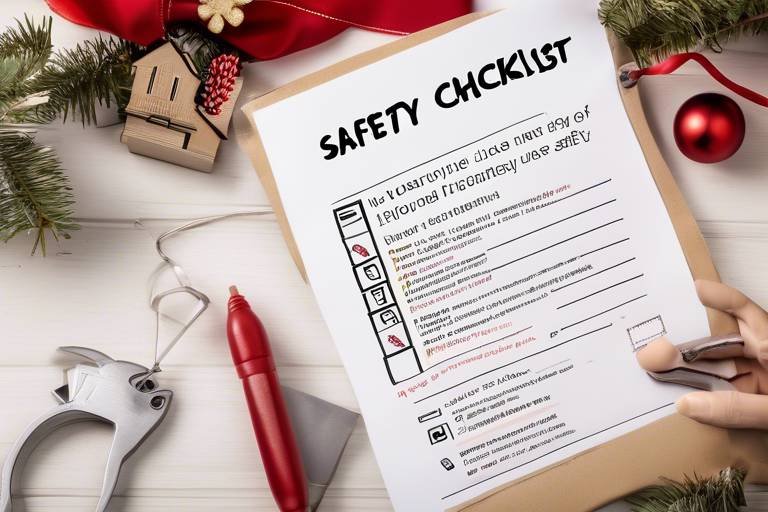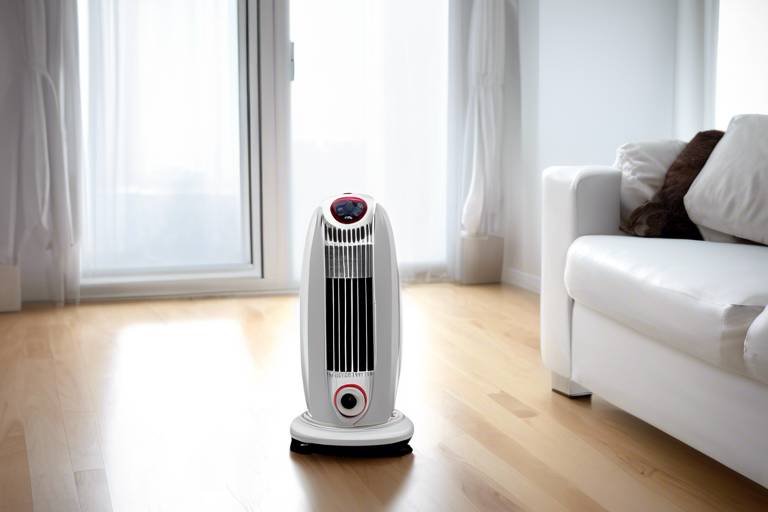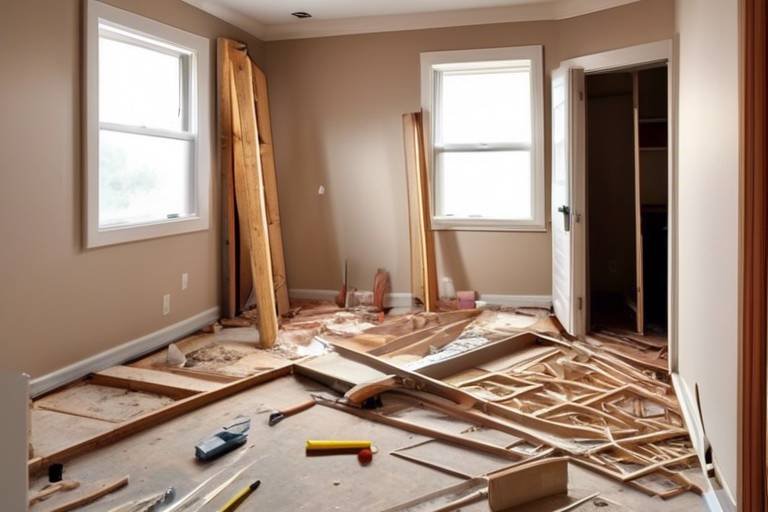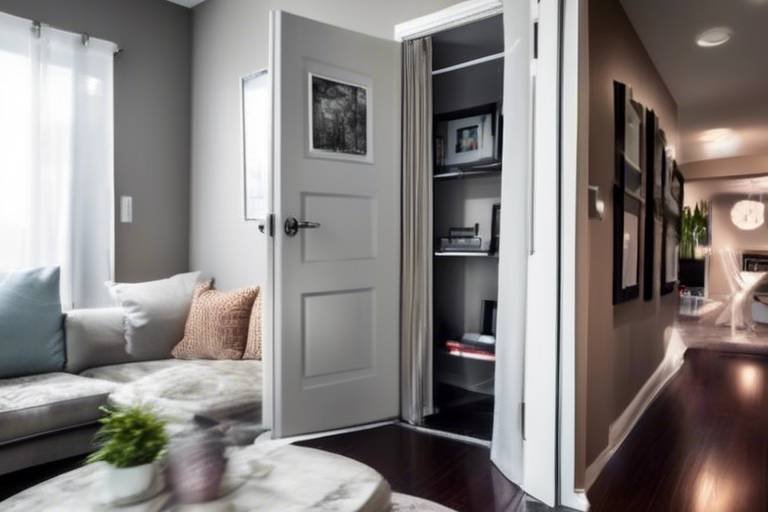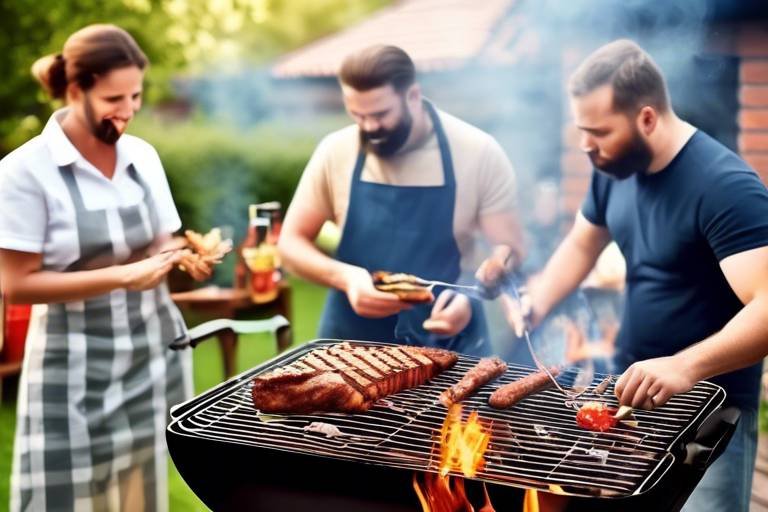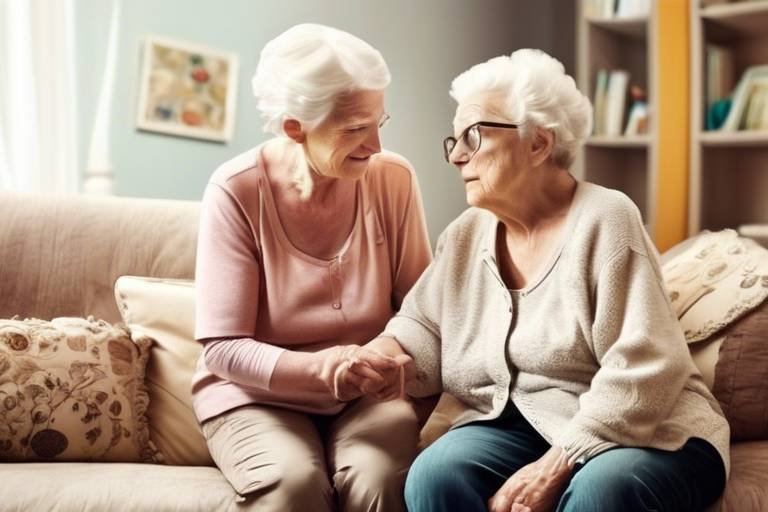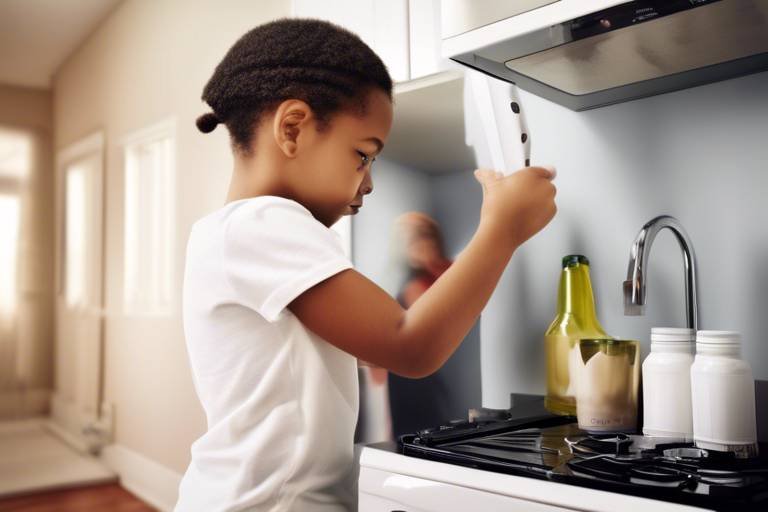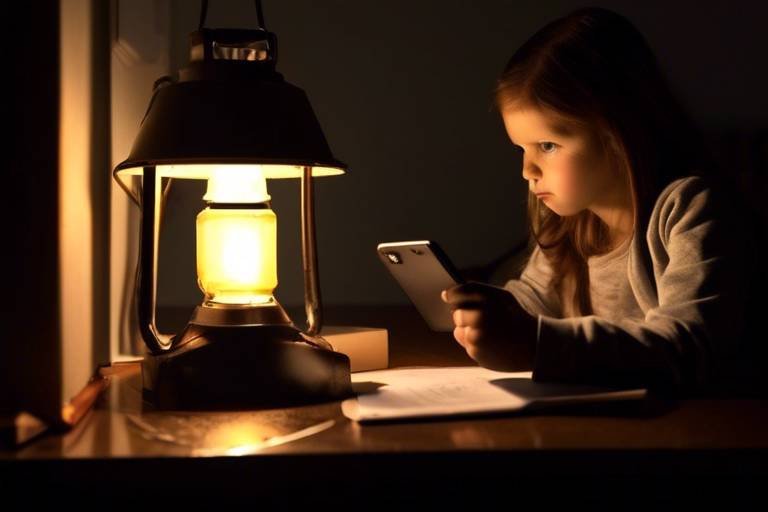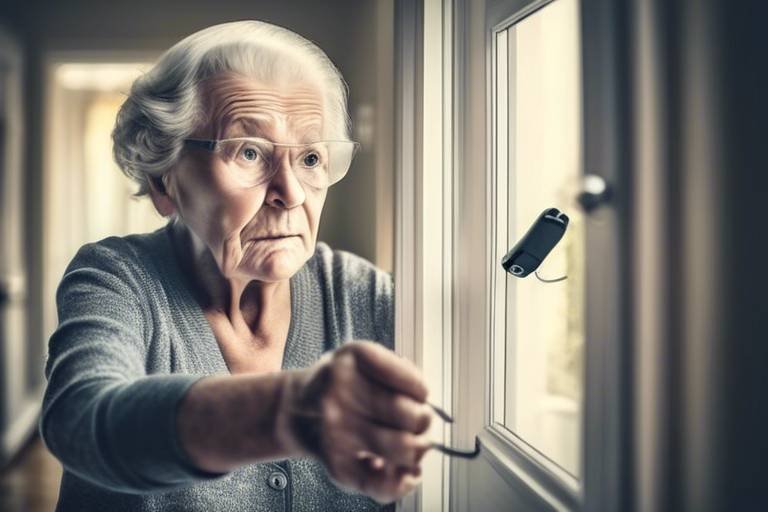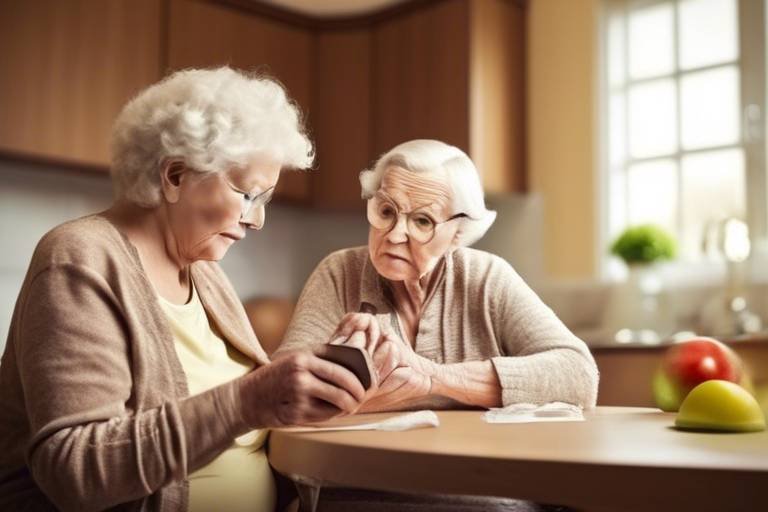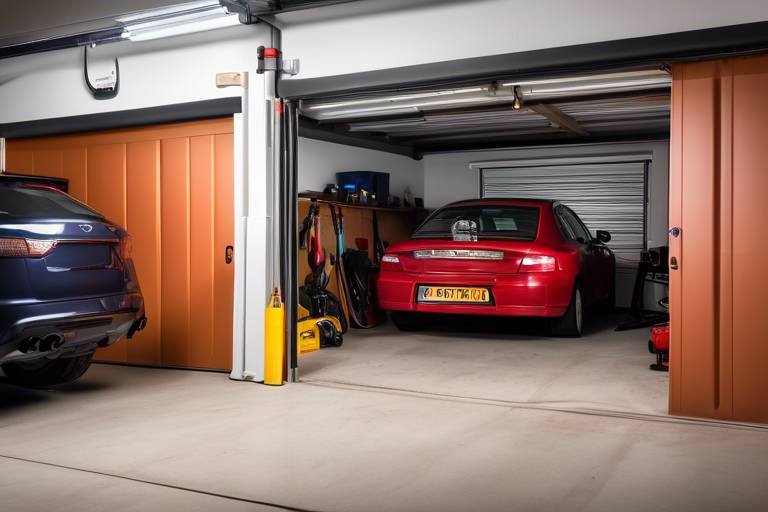Holiday Home Safety Checklist
When it comes to your holiday home, ensuring the safety and security of your space is not just a priority; it's a necessity. After all, your home away from home should be a sanctuary where you can relax and enjoy time with family and friends without worrying about potential hazards. This comprehensive checklist is designed to help you identify and implement essential safety measures, so you can create a welcoming environment for you and your guests. Let's dive into the key areas of focus, from fire safety to childproofing, ensuring that your holiday home is not only comfortable but also secure.
Understanding fire safety is crucial for any holiday home. Imagine the horror of a fire breaking out while you're away or even while you're enjoying a cozy evening with loved ones. To protect against fire hazards, it's essential to implement several precautions. First and foremost, install smoke detectors in key areas of your home, such as the kitchen, hallways, and bedrooms. Regularly check the batteries to ensure they are functional. Additionally, having a fire extinguisher on hand can make all the difference in an emergency; place it in easily accessible locations, particularly in the kitchen. Don't forget to develop an evacuation plan that everyone is familiar with, so in case of an emergency, you can exit quickly and safely.
Securing your holiday home is vital to prevent burglaries and ensure peace of mind. Think of your home as a treasure chest; you wouldn't leave it unlocked for anyone to rummage through, right? Here are some effective security measures to consider: invest in a reliable alarm system that alerts you and authorities in case of a breach. Additionally, adequate outdoor lighting can deter intruders; motion-sensor lights are particularly effective in illuminating dark corners of your property. Engaging in neighborhood watch programs can also enhance safety, as community vigilance plays a crucial role in deterring crime.
Ensuring all doors and windows are properly locked is a fundamental security measure. It’s the first line of defense against unwanted visitors. Double-check that all entry points are secured before leaving your home unattended. Consider using deadbolts for added security, and if you have sliding doors, invest in a security bar or rod to prevent them from being opened easily. Remember, a few extra minutes spent on securing your home can save you from a potential disaster.
Integrating smart home devices can significantly enhance your security. Think of them as your personal security team, always on alert. Smart locks allow you to control access remotely, while security cameras provide real-time monitoring and alerts on your smartphone. Motion sensors can notify you of any unusual activity around your home, giving you peace of mind whether you’re just down the street or thousands of miles away.
Participating in or establishing a neighborhood watch can bolster safety in your community. It’s like having a group of friends looking out for each other. These programs foster communication among neighbors, allowing everyone to stay informed about suspicious activities. By working together, you can create a safer environment for everyone in your area.
Being prepared for emergencies is essential. Emergencies can strike at any time, and having a plan in place can make all the difference. Start by creating an emergency kit that includes essentials like water, non-perishable food, flashlights, and first aid supplies. Additionally, develop a communication plan with family and friends, so everyone knows how to reach one another in case of an emergency. Lastly, ensure that you have easy access to first aid supplies and that everyone in your household knows basic first aid procedures.
Ensuring the safety of children and pets in a holiday home is crucial. Think of your home as a playground; while it should be fun, it also needs to be safe. Start by childproofing your space, securing heavy furniture to walls to prevent tipping, and keeping sharp objects out of reach. For pet owners, pet-proofing is equally important; make sure toxic plants and hazardous materials are stored safely away. Remember, a little preparation goes a long way in preventing accidents.
Outdoor spaces can pose various risks, especially for children and pets. If your holiday home has a pool or hot tub, consider installing fences with self-locking gates to prevent unsupervised access. Ensure that play areas are free from sharp objects and that any equipment is age-appropriate and well-maintained. By taking these precautions, you can create a fun and safe environment for everyone to enjoy.
Identifying and mitigating indoor safety hazards is vital. Common dangers include sharp objects, heavy furniture, and toxic substances. Make sure to store cleaning supplies and medications out of reach of children and pets. Additionally, secure heavy furniture and appliances to prevent tipping. Regularly inspect your home for potential hazards and address them promptly to create a safer living space.
Maintaining health and hygiene in your holiday home is essential. A clean home is not only inviting but also a key component of safety. Establish a routine for cleaning and sanitizing high-touch surfaces to prevent the spread of germs. Ensure that you have access to medical supplies, including first aid kits and any necessary medications. By prioritizing health and hygiene, you can ensure that your holiday home remains a safe haven for you and your guests.
1. What are the essential items for an emergency kit?
An emergency kit should include water, non-perishable food, a flashlight, batteries, a first aid kit, and any necessary medications.
2. How often should I check my smoke detectors?
It's recommended to check your smoke detectors monthly and replace the batteries at least once a year.
3. What are some tips for childproofing my holiday home?
To childproof your home, secure heavy furniture to walls, keep sharp objects out of reach, and cover electrical outlets.
4. How can I enhance the security of my holiday home?
You can enhance security by installing an alarm system, using outdoor lighting, and engaging in neighborhood watch programs.
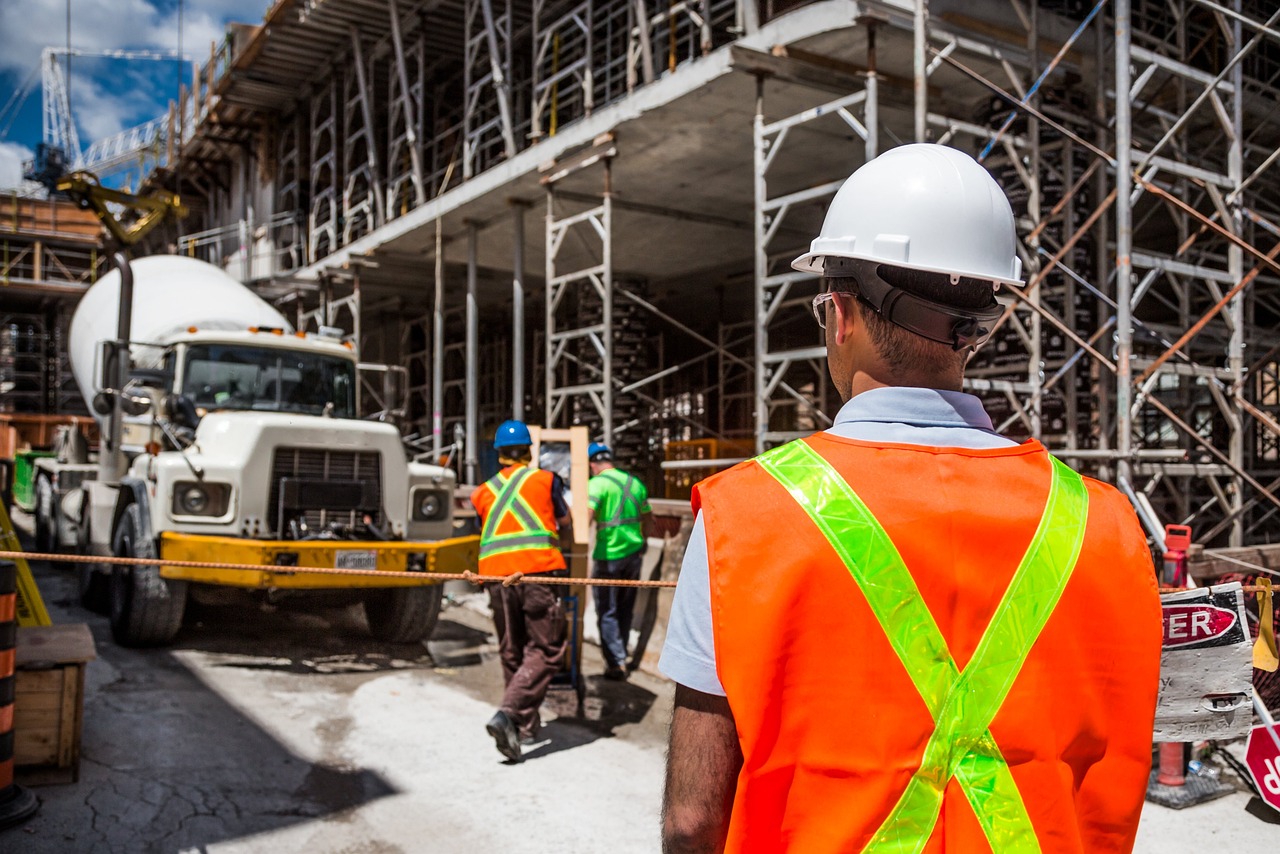
Fire Safety Measures
When it comes to your holiday home, ensuring fire safety is not just a precaution; it’s a necessity. Imagine the peace of mind you’ll have knowing that you’ve taken the right steps to protect your loved ones and your property from potential fire hazards. To start, it’s essential to equip your holiday home with smoke detectors. These lifesaving devices should be installed in every room, particularly near sleeping areas, and should be tested monthly to ensure they are functioning properly. Remember, a smoke detector is your first line of defense against fire, so don’t overlook its importance!
In addition to smoke detectors, having a fire extinguisher readily available can make a world of difference in an emergency. It's recommended to keep at least one fire extinguisher on each floor of your holiday home, especially in areas like the kitchen, where fires are more likely to occur. Make sure to check the expiration date and replace any outdated units. Knowing how to use a fire extinguisher can also save precious seconds when every moment counts; consider taking a quick refresher course if you’re unsure.
Another critical aspect of fire safety is having a well-thought-out evacuation plan. This plan should detail the safest routes out of your home and designate a meeting point outside. Share this plan with all guests upon arrival, so everyone knows what to do in the event of a fire. Practicing this plan can also be beneficial, especially with children, as it makes them familiar with the steps to take during an emergency.
To further enhance your fire safety measures, consider the following tips:
- Keep flammable materials away from heat sources.
- Regularly inspect electrical appliances and wiring for any signs of wear.
- Never leave cooking unattended and keep a close eye on any open flames.
By implementing these fire safety measures, you’re not only protecting your property but also creating a safe haven for your family and guests. Remember, a little preparation goes a long way in ensuring a worry-free holiday experience. So, take these steps seriously, and you’ll be well on your way to enjoying your time away without the looming shadow of fire hazards.
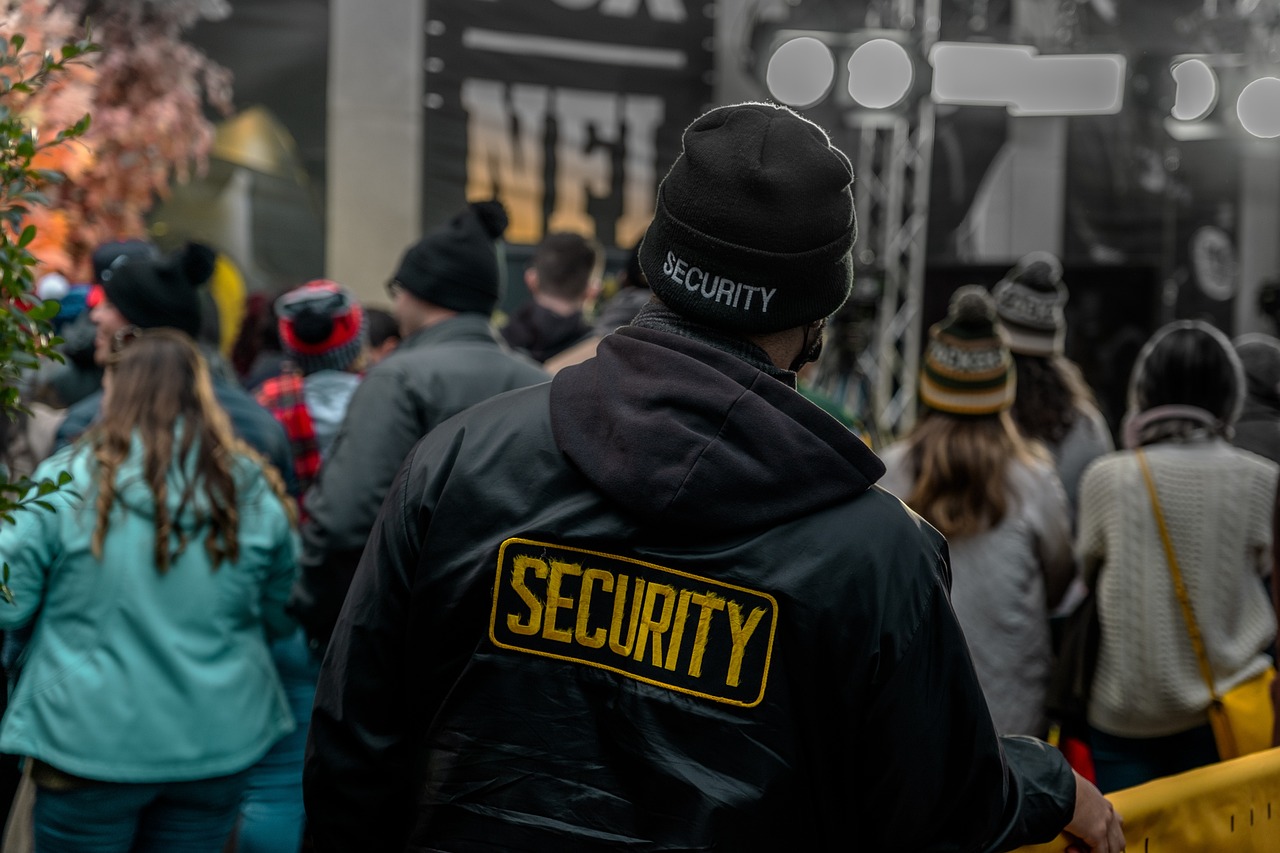
Security Precautions
When it comes to your holiday home, ensuring its security is not just a precaution; it's a necessity. Imagine arriving at your cozy getaway only to find that it has been compromised. The thought alone can send chills down anyone's spine! To avoid such scenarios, implementing effective security measures is crucial. Let's dive into some essential strategies that will help you keep your holiday home safe and sound.
First and foremost, consider installing a reliable alarm system. These systems act as a deterrent for potential intruders and provide peace of mind when you're not around. Modern alarm systems can be connected to your smartphone, allowing you to monitor your property in real-time. You can receive alerts if someone tries to enter your home while you're away, ensuring that you are always in the loop.
Another effective way to enhance security is through outdoor lighting. Well-lit areas can deter burglars who prefer to operate in the shadows. Motion-activated lights are particularly effective; they not only illuminate the area but also create the impression that someone is home. Imagine walking up to your holiday home at night and feeling a sense of safety as the lights flicker on, guiding your way. It's like having a welcoming committee that also keeps intruders at bay!
Additionally, don't underestimate the power of a strong neighborhood watch program. Engaging with your neighbors and establishing a community watch can significantly bolster your home's security. When everyone looks out for one another, it creates a sense of vigilance that can deter criminal activities. You might even find that your neighbors are more than willing to keep an eye on your property while you're away, providing an extra layer of protection.
Now, let’s not forget the basics: locking doors and windows. It sounds simple, but many people overlook this fundamental security measure. Always ensure that all entry points are securely locked, especially when you leave for extended periods. Consider upgrading to high-quality locks that are resistant to tampering. Remember, a sturdy door is your first line of defense against unwanted visitors.
Incorporating smart home technology can take your security to the next level. Smart locks allow you to control access to your home remotely, while security cameras provide live feeds of your property. Imagine being able to check your camera feed while lounging on the beach, knowing that you can see everything happening at home. Motion sensors can alert you to any unusual activity, giving you the power to act swiftly if something seems amiss.
Participating in a neighborhood watch program not only enhances your security but also fosters a sense of community. When neighbors work together, they can share information about suspicious activities and create a safer environment for everyone. Consider attending local meetings or even starting a program if one doesn’t exist. You’ll be surprised at how many people are eager to join forces for a common goal: keeping their homes safe.
In conclusion, securing your holiday home involves a combination of proactive measures and community engagement. From installing alarm systems and outdoor lighting to fostering neighborhood watch programs, each step contributes to a safer environment. Remember, the goal is to create a sanctuary where you can relax and enjoy your time away without worrying about security. So, take these precautions seriously and enjoy your holiday home to the fullest!
Q: What are the best types of locks to use for holiday homes?
A: Look for high-quality deadbolt locks, smart locks, and reinforced strike plates for optimal security.
Q: How can I make my outdoor areas safer?
A: Ensure that all outdoor spaces are well-lit and consider installing security cameras to monitor these areas.
Q: What should I do if I notice suspicious activity in my neighborhood?
A: Report it to local authorities and inform your neighbors. Being proactive can prevent potential crimes.
Q: Are neighborhood watch programs effective?
A: Yes! They foster community vigilance, which can significantly deter crime in the area.
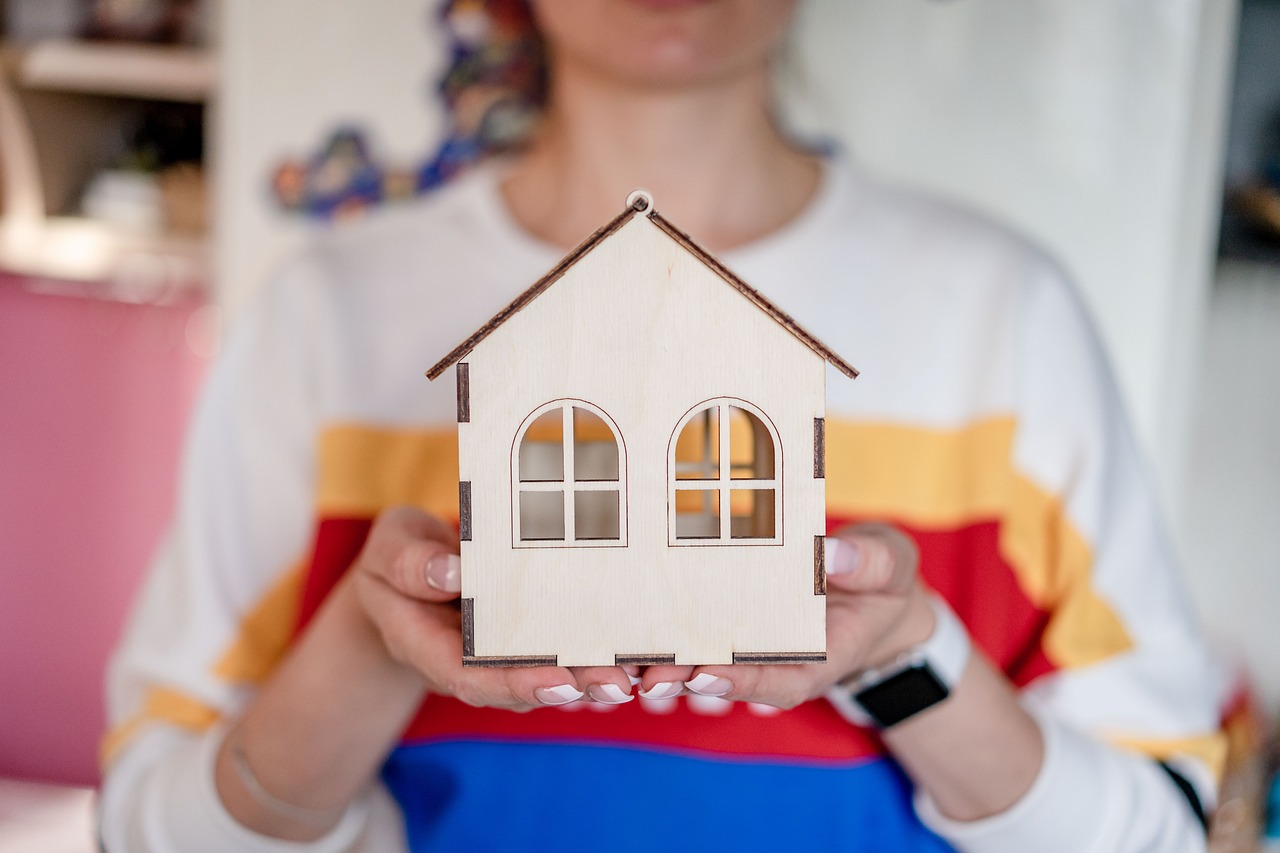
Locking Doors and Windows
When it comes to securing your holiday home, is one of the simplest yet most effective measures you can take. Think of your home as a fortress; if the gates are wide open, it’s only a matter of time before unwelcome visitors stroll in. Ensuring that all entry points are properly locked not only gives you peace of mind but also acts as a significant deterrent to potential intruders.
Start by examining all the doors and windows in your holiday home. Are they fitted with sturdy locks? If not, it might be time to invest in high-quality locks that can withstand tampering. For doors, consider deadbolt locks, which provide an extra layer of security compared to standard knob locks. Windows should be fitted with locks that are easy to operate but difficult for outsiders to manipulate. Remember, the goal is to make it as challenging as possible for anyone to gain access.
Additionally, it’s essential to establish a routine check before you leave your home after a stay. This means ensuring that all windows and doors are not only locked but also secure. It’s easy to overlook a window left slightly ajar or a door that didn’t quite click into place. To assist with this, you might find it helpful to create a simple checklist:
| Entry Point | Status | Notes |
|---|---|---|
| Front Door | Locked | Check deadbolt |
| Back Door | Locked | Ensure sliding door is secured |
| Living Room Window | Locked | Check for any damage |
| Bedroom Window | Locked | Inspect for ease of locking |
Moreover, consider the placement of your locks. For windows, locks should ideally be positioned in a way that makes them hard to reach from outside. If you have sliding doors, add a security bar or dowel in the track to prevent them from being forced open. It’s all about thinking like a burglar and identifying vulnerabilities in your home’s security.
Lastly, don’t forget about smart technology that can enhance your locking system. Smart locks allow you to lock and unlock your doors remotely, receive alerts if someone tries to tamper with them, and even grant access to trusted friends or family members when you’re not around. This way, you can keep an eye on your holiday home from anywhere in the world, adding another layer of reassurance to your security measures.
In summary, securing your holiday home starts with the basics: ensuring that all doors and windows are locked and fortified with reliable locks. By taking these steps, you can enjoy your time away without worrying about the safety of your property.
- What type of locks are best for holiday homes? Deadbolt locks are highly recommended for doors, while window locks should be sturdy and tamper-proof.
- How often should I check my locks? It’s a good practice to check all locks before leaving your holiday home after each visit.
- Can smart locks really improve my home security? Yes, smart locks offer remote access and alerts, making them a great addition to your security system.
- What else can I do to secure my holiday home? Consider installing outdoor lighting, security cameras, and joining a neighborhood watch program.
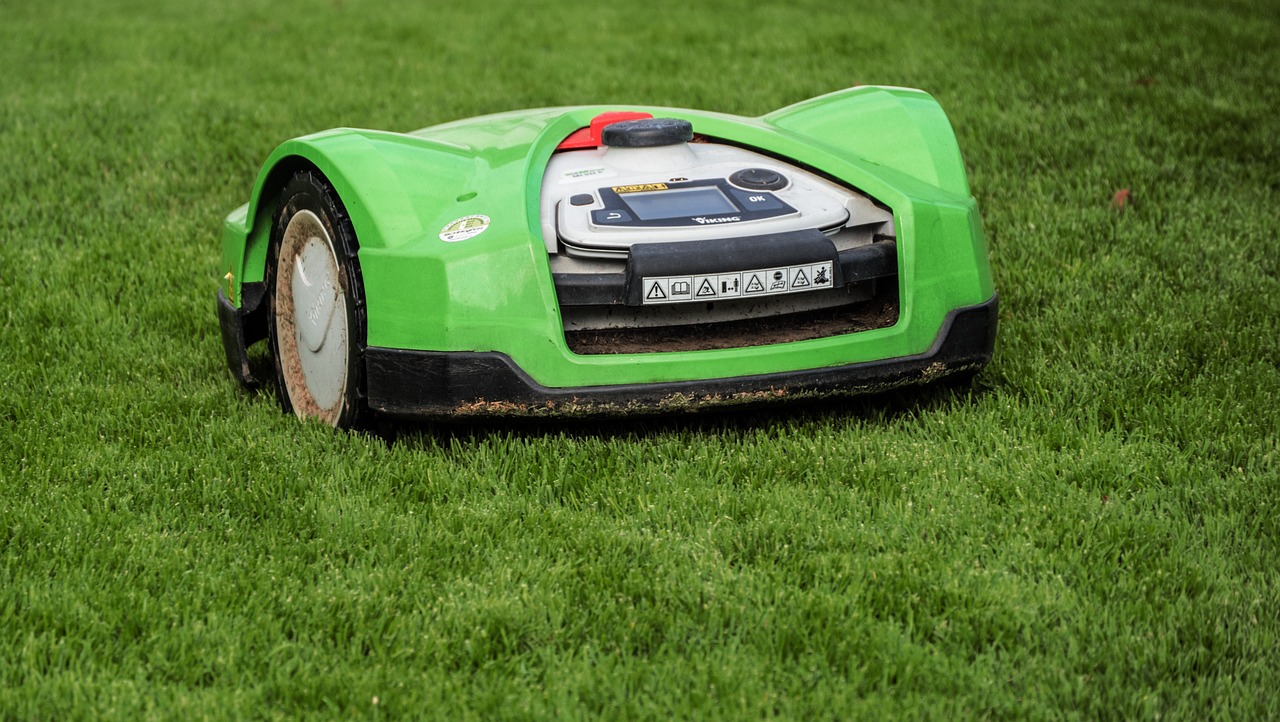
Smart Home Technology
In today's fast-paced world, has become a game-changer, especially when it comes to enhancing the security of your holiday home. Imagine being able to monitor your property from anywhere in the world, all from the comfort of your smartphone. This technology not only provides peace of mind but also allows for a level of convenience that traditional security measures simply cannot match.
One of the most popular smart devices is the smart lock. These locks can be controlled remotely, allowing you to lock or unlock your doors with just a tap on your phone. Gone are the days of worrying about lost keys or whether you remembered to lock the door. You can even set temporary access codes for guests or service personnel, ensuring that only trusted individuals have access to your home.
Another essential component of smart home security is the use of security cameras. These devices can be placed strategically around your property to provide real-time surveillance. Many modern cameras come equipped with features like night vision, motion detection, and two-way audio, allowing you to communicate with anyone on your property, whether you're home or away. This can be particularly useful for deterring potential intruders, as they are less likely to attempt a break-in if they know they are being watched.
Additionally, motion sensors can be integrated into your home security system. These sensors can detect movement in and around your property, sending instant alerts to your phone if any unusual activity is detected. Imagine being notified in real-time if someone approaches your home, giving you the opportunity to take action before a situation escalates.
For a truly comprehensive security system, consider integrating all these devices into a smart home hub. This hub acts as the central command center for your smart devices, allowing you to control everything from one place. You can set schedules, receive notifications, and even automate responses to certain triggers. For example, if a motion sensor detects movement, your smart lights can turn on automatically, illuminating the area and potentially scaring off intruders.
Lastly, it's worth mentioning that many of these smart home devices can work in conjunction with home automation systems. This means you can program your lights to turn on and off at specific times, create a welcoming atmosphere for guests, or simply give the impression that someone is home, even when you're not. This added layer of deception can be incredibly effective in deterring crime.
In conclusion, investing in smart home technology is not just about convenience; it's about creating a secure environment for you and your loved ones. By leveraging these innovative solutions, you can ensure that your holiday home remains a safe haven, no matter where you are.
- What are the benefits of smart home technology for security? Smart home technology enhances security by providing remote monitoring, real-time alerts, and automation features that deter crime.
- Can I control smart locks remotely? Yes, smart locks can be controlled through a smartphone app, allowing you to lock or unlock your doors from anywhere.
- Do I need a smart home hub for all devices? While not mandatory, a smart home hub can simplify control and integration of multiple smart devices.
- Are smart security cameras effective? Yes, they provide real-time surveillance and can deter potential intruders with features like motion detection and two-way audio.
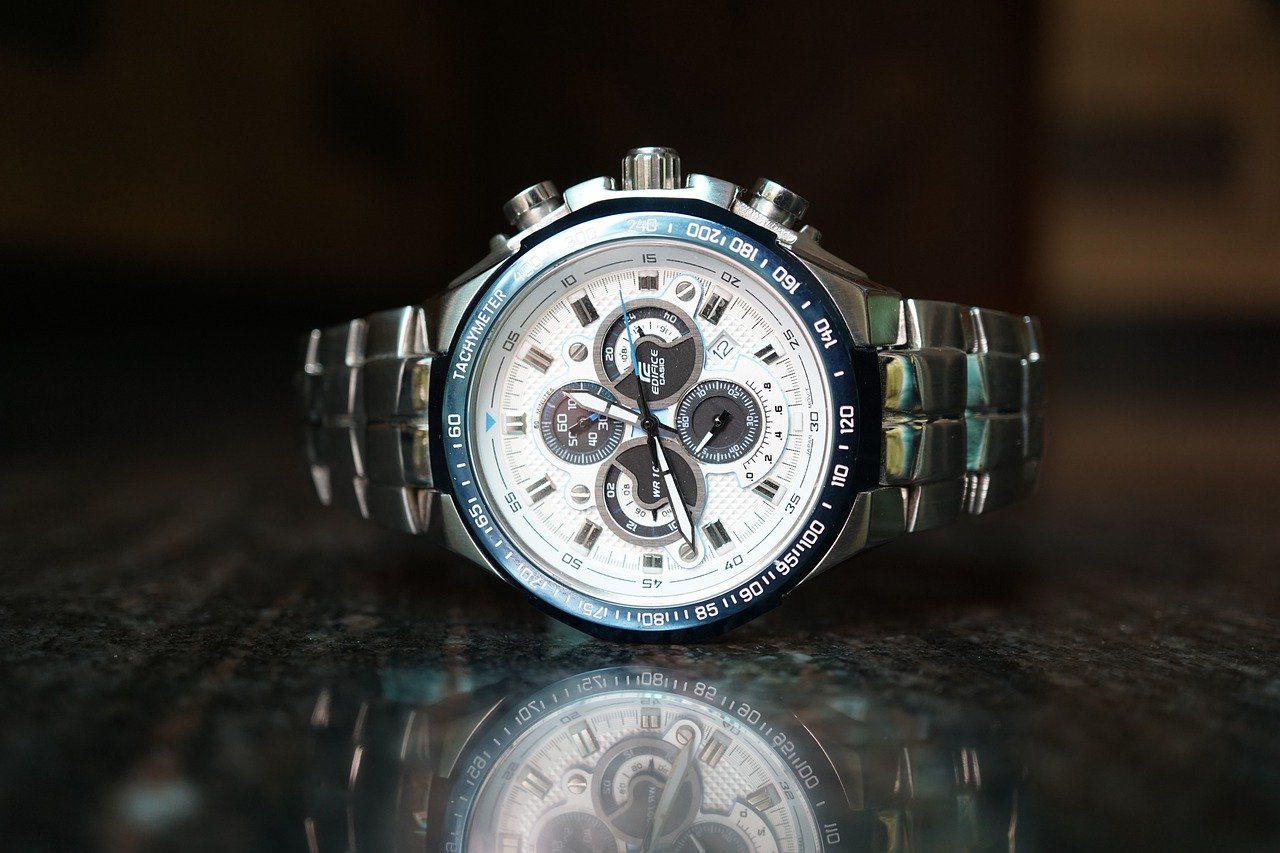
Neighborhood Watch Programs
When it comes to ensuring the safety of your holiday home, one of the most effective strategies is to get involved in or establish a Neighborhood Watch Program. These programs foster a sense of community vigilance and cooperation, making it harder for criminals to operate undetected. Imagine your neighborhood as a fortress; the more watchful eyes you have, the stronger your defenses become. Not only does this initiative enhance security, but it also builds relationships among neighbors, creating a friendly environment where everyone looks out for one another.
Participating in a Neighborhood Watch Program means being proactive. You can start by organizing regular meetings where residents discuss safety concerns, share tips, and plan community events. These gatherings can serve as a platform to educate everyone about recognizing suspicious behavior and reporting it to the authorities. Furthermore, the program can establish a communication network, perhaps through a dedicated group chat or social media page, enabling quick dissemination of information about local safety issues.
One of the key elements of a successful Neighborhood Watch is establishing clear communication channels. This could be as simple as a neighborhood newsletter or a community bulletin board where residents can post alerts about recent incidents or safety tips. Additionally, it’s essential to create a contact list of all members, ensuring that everyone knows who to reach out to in case of an emergency. This sense of connectivity not only helps in emergencies but also fosters a supportive community spirit.
Moreover, consider collaborating with local law enforcement. Many police departments offer resources and support for Neighborhood Watch programs, including training sessions on crime prevention strategies. They can provide insights into crime trends in your area and help you understand how to respond effectively. By working together, you can create a safer environment that deters potential criminals.
In summary, Neighborhood Watch Programs are not just about keeping an eye on your surroundings; they embody the essence of community spirit and cooperation. By joining or creating such a program, you are taking an active role in safeguarding your holiday home and ensuring that your neighborhood remains a safe haven for everyone. So, gather your neighbors, share your concerns, and take the first step towards building a secure and connected community.
- What is a Neighborhood Watch Program?
A Neighborhood Watch Program is a community initiative where residents work together to monitor and report suspicious activities, enhancing local safety. - How can I start a Neighborhood Watch in my area?
To start a Neighborhood Watch, gather interested neighbors, contact your local police department for resources, and organize an initial meeting to discuss goals and strategies. - What are the benefits of joining a Neighborhood Watch?
Joining a Neighborhood Watch can increase safety, foster community relationships, and provide residents with a support network for addressing local concerns.

Emergency Preparedness
When it comes to enjoying your holiday home, the last thing you want to think about is an emergency. However, being prepared can make all the difference in ensuring the safety and well-being of everyone present. Imagine you're lounging by the pool, and suddenly, a storm rolls in. Are you ready? Emergency preparedness is not just about having a plan; it’s about creating a safety net that allows you to enjoy your time without worry.
First and foremost, consider assembling an emergency kit. This kit should be easily accessible and contain essential items that can help you during unexpected situations. Think of it as your safety toolbox, ready to tackle any challenge that comes your way. A well-stocked emergency kit might include:
- First aid supplies (bandages, antiseptics, etc.)
- Non-perishable food and water
- Flashlights and batteries
- Whistle for signaling
- Multi-tool or knife
- Emergency blanket
Next, develop a communication plan that outlines how you and your guests will stay in touch during an emergency. This is crucial, especially if you're in a remote location. Designate a meeting point and ensure everyone knows how to reach it. In addition, consider sharing contact information with your guests, including local emergency services, just in case. Think of this plan as your lifeline, connecting you to safety when the unexpected occurs.
Don't forget about the importance of regular checks on your emergency supplies. Just like a car needs its oil changed, your emergency kit needs to be updated. Make it a habit to review its contents every few months, replacing expired items and ensuring everything is in working order. This simple act can save valuable time when every second counts.
Finally, ensure that your holiday home is equipped with essential safety features. Smoke detectors and carbon monoxide detectors should be installed and regularly tested. These devices are your silent guardians, alerting you to dangers before they escalate. Additionally, having a fire extinguisher readily available can be a lifesaver in case of a small fire. It’s like having a superhero on standby, ready to spring into action when needed!
In summary, being prepared for emergencies in your holiday home is about creating a comprehensive safety plan that includes an emergency kit, a communication strategy, regular supplies checks, and essential safety equipment. By taking these proactive steps, you can relax and enjoy your time away, knowing that you’re prepared for whatever life throws your way.
1. What should I include in my emergency kit?
Your emergency kit should ideally contain first aid supplies, non-perishable food, water, flashlights, batteries, a whistle, a multi-tool, and an emergency blanket.
2. How often should I check my emergency supplies?
It’s a good practice to check your emergency supplies every few months to replace expired items and ensure everything is functioning properly.
3. What is the best way to communicate during an emergency?
Develop a communication plan that includes a designated meeting point and ensure that everyone knows how to reach it. Sharing local emergency contact information is also beneficial.
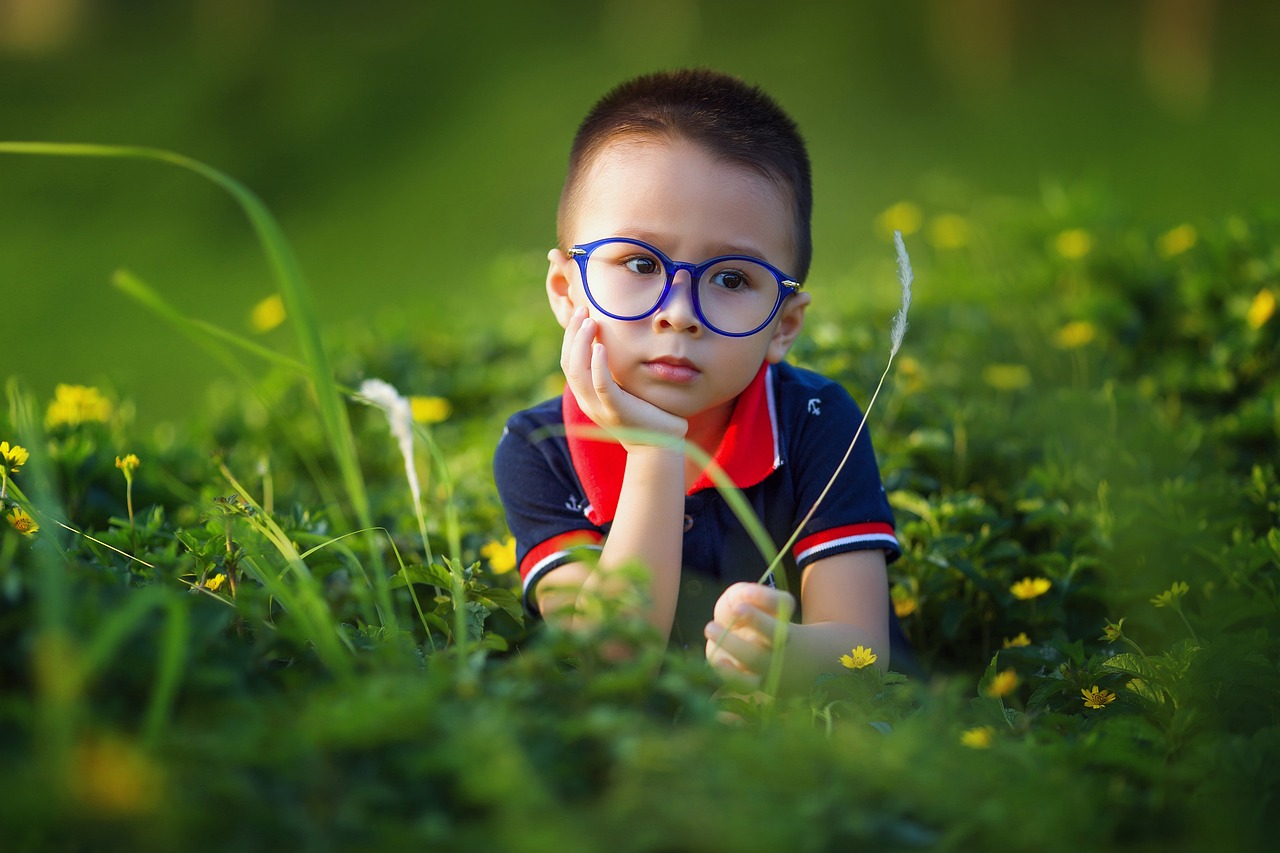
Child and Pet Safety
Ensuring the safety of children and pets in your holiday home is not just a good idea; it’s a necessity. Imagine a carefree vacation where your little ones and furry friends can roam freely without the constant worry of potential dangers lurking around every corner. To achieve that peace of mind, it’s essential to implement a few straightforward yet effective safety measures. After all, a relaxed holiday is one where everyone feels secure and protected.
First and foremost, you should consider childproofing your space. This means identifying and mitigating any hazards that could pose a risk to your little explorers. For instance, sharp objects such as knives or scissors should be stored out of reach, ideally in locked drawers. Heavy furniture should be anchored to the wall to prevent tipping, especially if your child has a penchant for climbing. Furthermore, toxic substances, including cleaning supplies and medications, should be securely stored away, preferably in cabinets with childproof locks.
When it comes to pets, creating a safe environment involves similar vigilance. Pets can be curious, often getting into things they shouldn't. Make sure that any plants within the home are non-toxic, as many common houseplants can be harmful to pets if ingested. Additionally, keep small items that could be choking hazards, like coins or small toys, out of reach. It's also wise to establish designated areas for pets to eat and rest, ensuring they have their own safe spaces within the home.
Outdoor areas can present unique challenges for both children and pets. If your holiday home has a pool or hot tub, it’s crucial to install fences with self-closing gates to prevent unsupervised access. In fact, drowning is a leading cause of accidental death among children, and a few simple barriers can make all the difference. Moreover, always supervise children and pets around water, as it only takes a moment for an accident to occur.
To further enhance safety in outdoor spaces, consider using non-slip mats around wet areas and keeping play equipment well-maintained. If you have a backyard, ensure that it is securely fenced to prevent pets from wandering off and to keep children safe from potential hazards outside. Regularly inspect play areas for any sharp edges or broken equipment that could cause injury.
In addition to these measures, it's wise to have a plan in place for emergencies. Accidents can happen, even in the safest of environments. Having a first aid kit readily available and knowing how to use it can be life-saving. Ensure that your kit is stocked with essential items such as band-aids, antiseptic wipes, and any necessary medications for both children and pets.
In summary, child and pet safety in your holiday home requires a proactive approach. By identifying potential hazards, implementing safety measures, and preparing for emergencies, you can create a secure environment that allows everyone to enjoy their time away from home. Remember, the goal is to foster an atmosphere of fun and relaxation, free from unnecessary risks. So take the time to childproof and pet-proof your space, and you’ll be well on your way to a worry-free vacation!
Q: What are some common childproofing measures I should take in my holiday home?
A: Common measures include securing heavy furniture to walls, using childproof locks on cabinets containing hazardous materials, and keeping sharp objects out of reach.
Q: How can I ensure my pet is safe in a new environment?
A: Make sure to identify any toxic plants, secure small items that could be choking hazards, and establish a designated area for your pet to relax away from potential dangers.
Q: What should I do if an accident occurs?
A: Always have a first aid kit on hand and familiarize yourself with its contents. Knowing basic first aid techniques can be invaluable in emergencies.
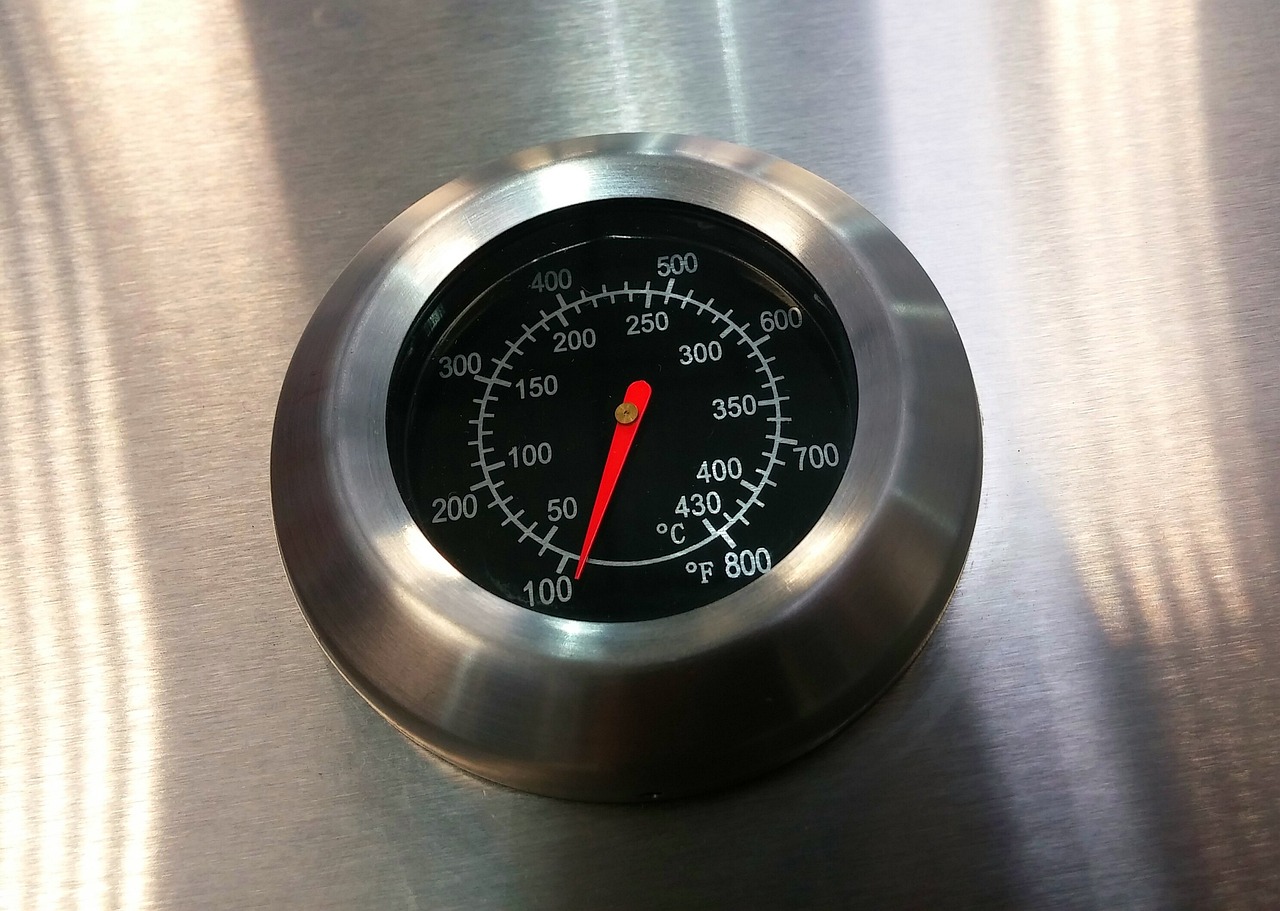
Safe Outdoor Areas
When it comes to enjoying the great outdoors at your holiday home, safety should always be a top priority. Outdoor areas can be a source of fun and relaxation, but they also come with their own set of risks, especially for children and pets. Imagine a sunny day where laughter fills the air, but lurking nearby are potential hazards that could turn joy into distress. To prevent that from happening, it’s essential to take proactive measures to secure your outdoor spaces.
First and foremost, if you have a pool or hot tub, these areas require special attention. It’s crucial to install sturdy fencing with self-locking gates to ensure that children cannot access the water unsupervised. Think of this fence as a protective cocoon that keeps your little ones safe while they play in the sun. Additionally, consider adding pool alarms that alert you when someone enters the water unexpectedly. These alarms act like a vigilant guardian, providing an extra layer of security.
Moreover, play areas should be designed with safety in mind. If you have swings, slides, or climbing structures, make sure they are placed on soft surfaces like grass or rubber mulch to cushion any falls. Regularly inspect these play structures for wear and tear, as even the most innocent-looking swing set can harbor hidden dangers. Just like you wouldn’t drive a car with worn-out tires, you shouldn’t allow your children to play on unsafe equipment.
In addition to pools and play areas, it’s important to keep your outdoor spaces tidy. Remove any debris, such as branches or toys left scattered around, that could pose tripping hazards. Establish clear pathways and ensure that outdoor furniture is stable and well-placed. Think of your yard as a stage where the performance of fun and laughter takes place; every element should contribute to a safe and enjoyable experience.
Furthermore, if you have pets, ensure that your outdoor areas are pet-proofed. This means securing trash bins, as curious pets can easily rummage through them, potentially ingesting harmful substances. It’s also wise to check for toxic plants that could be harmful if ingested. Just like you would childproof your home, pet-proofing your outdoor space is equally important to keep your furry friends safe and sound.
Lastly, consider the importance of supervision. While it’s tempting to relax and enjoy your own time in the backyard, keeping a watchful eye on children and pets can prevent accidents before they happen. Just as a lifeguard is always on duty at the pool, you too should be vigilant. Remember, safety is not just a checklist; it’s a mindset that allows everyone to enjoy the outdoor experience without worry.
- What are the best safety measures for outdoor pools?
Installing a fence, using pool alarms, and ensuring constant supervision are key safety measures for outdoor pools. - How can I pet-proof my outdoor area?
Secure trash bins, remove toxic plants, and ensure that any chemicals or tools are stored safely out of reach. - What should I do if I notice wear and tear on outdoor play equipment?
Regularly inspect play equipment and repair or replace any damaged parts immediately to prevent accidents. - Is it necessary to supervise children while they play outdoors?
Yes, constant supervision is essential to prevent accidents and ensure a safe play environment.
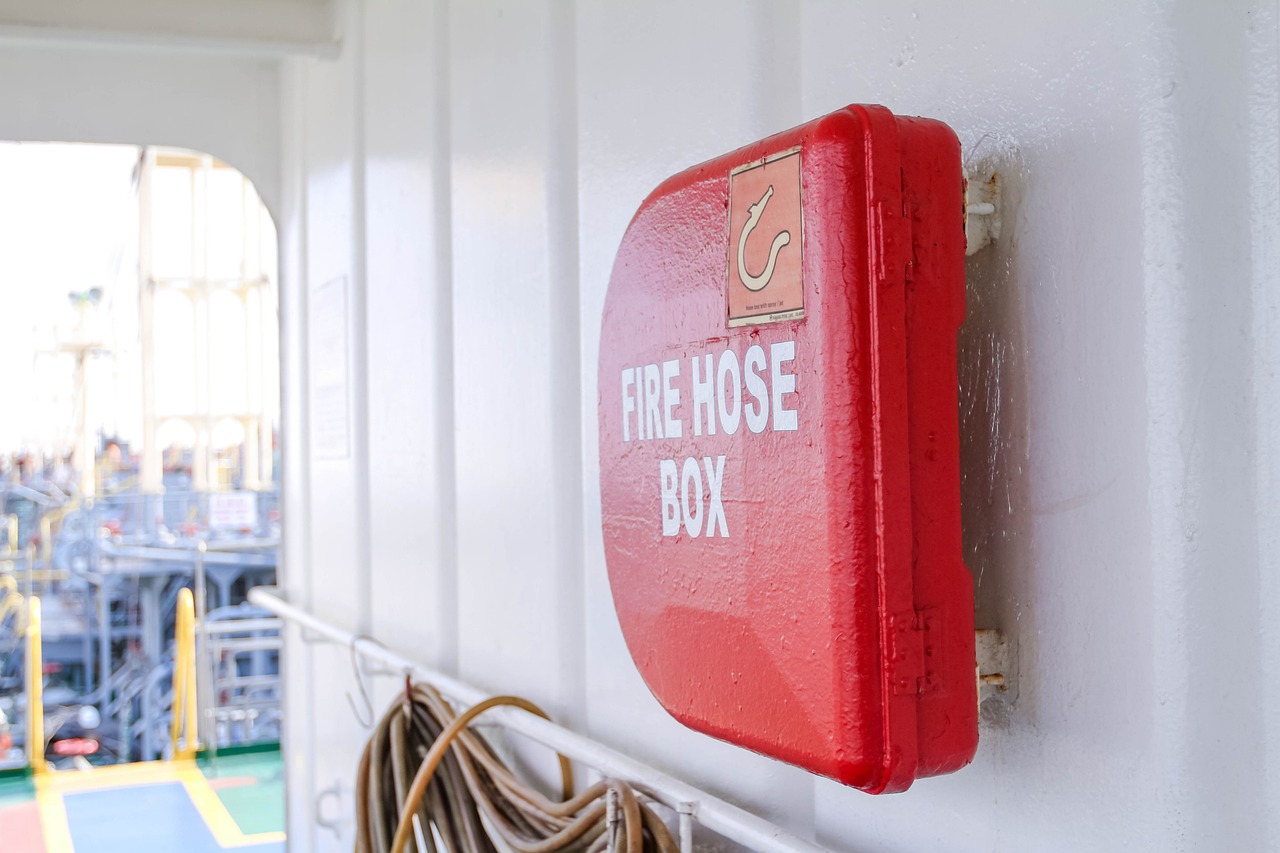
Indoor Safety Hazards
When it comes to ensuring a safe environment in your holiday home, are often overlooked. Think about it: you’re in a new place, surrounded by unfamiliar furniture and decor, and it’s easy to forget that there could be hidden dangers lurking around. From sharp objects to heavy furniture, it's crucial to assess your space for potential risks that could lead to accidents. By taking a proactive approach, you can create a safe haven for everyone, including children and pets.
One of the most common indoor hazards is the presence of sharp objects. Whether it's kitchen knives, scissors, or even decorative items like glass vases, these can pose serious risks, especially if left within reach of curious little hands. To mitigate this risk, consider implementing some basic safety measures. For instance, store sharp items in high cabinets or locked drawers, and use childproof locks if necessary. Additionally, make sure to regularly check your home for any items that could become hazardous, such as broken glass or sharp edges on furniture.
Another area of concern is heavy furniture. Large items like bookshelves, dressers, and entertainment centers can become unstable, especially if they are not anchored properly. This is particularly important in homes with children who may climb or pull on these items. To prevent accidents, it’s essential to secure heavy furniture to the wall using brackets or straps. This simple step can significantly reduce the risk of tipping, ensuring that your holiday home remains a safe space for everyone.
Don't forget about toxic substances that might be lurking in your cabinets. Cleaning supplies, medications, and even certain plants can pose risks if ingested or improperly handled. To keep your holiday home safe, store all hazardous materials out of reach of children and pets, preferably in locked cabinets. Additionally, consider labeling these items clearly to prevent accidental misuse. It’s also wise to have the number of a poison control center handy, just in case.
Lastly, be aware of the potential for slips and falls. Areas like kitchens and bathrooms can become slippery, especially when wet. To combat this, invest in non-slip mats and ensure that all spills are cleaned immediately. Furthermore, keep pathways clear of clutter to minimize tripping hazards. By taking these precautions, you can significantly reduce the likelihood of accidents in your holiday home.
In summary, keeping your holiday home safe from indoor hazards requires a bit of vigilance and proactive measures. By addressing sharp objects, securing heavy furniture, managing toxic substances, and preventing slips and falls, you’ll create a more secure environment for all your guests. Remember, safety is not just about avoiding accidents; it’s about creating a welcoming space where everyone can relax and enjoy their time together.
- How can I identify indoor safety hazards in my holiday home?
Start by walking through each room, looking for sharp objects, heavy furniture, and toxic substances. Consider the age of your guests and assess what might be dangerous for children or pets. - What are some tips for securing heavy furniture?
Use brackets or straps to anchor heavy items to the wall. This prevents tipping and makes your space safer, especially for children who may climb on furniture. - How can I make my holiday home safe for pets?
Keep hazardous materials out of reach, secure any heavy items, and ensure that there are no small objects that could be swallowed. Also, consider pet-proofing areas where your pet will spend time. - What should I do if an accident occurs?
Have a first aid kit readily available and familiarize yourself with basic first aid procedures. Keep emergency contact numbers handy, including poison control.
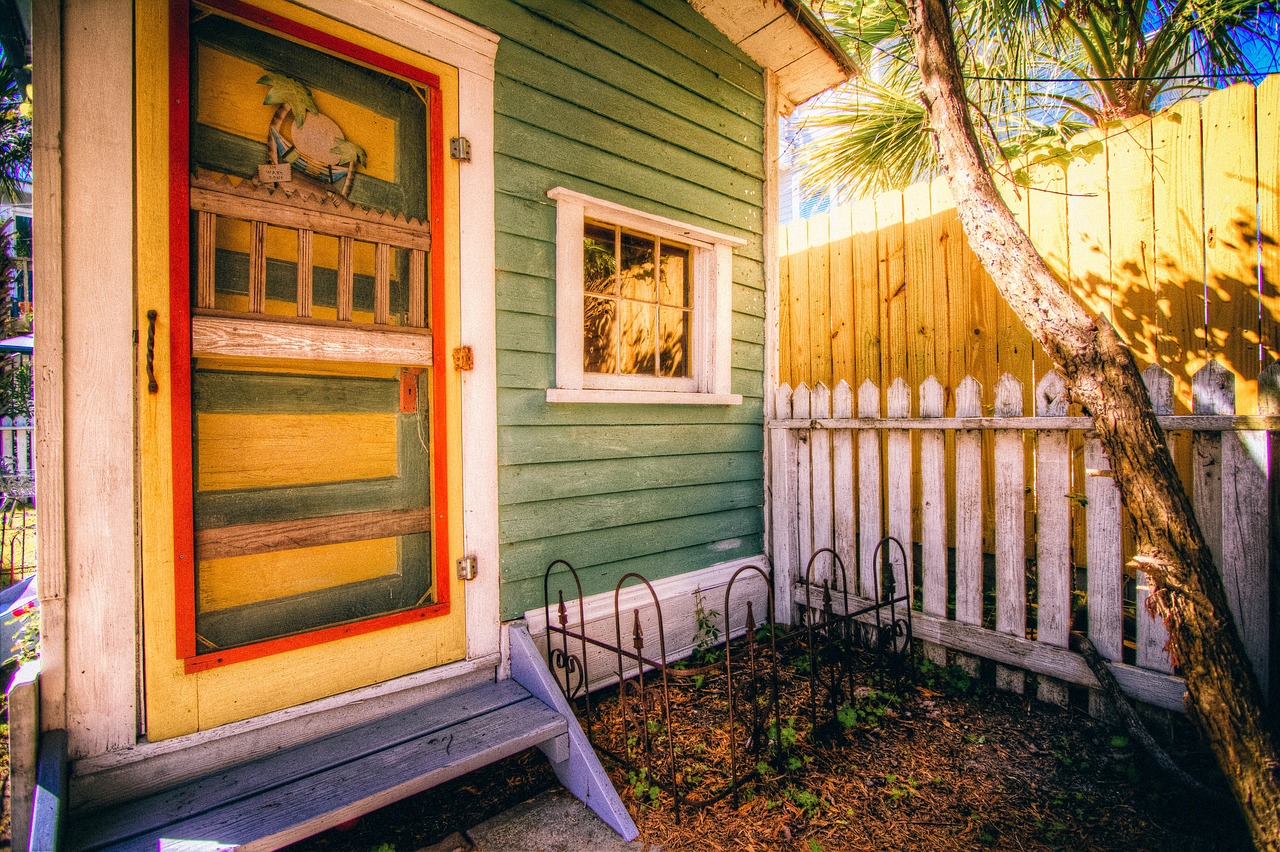
Health and Hygiene
When you're enjoying a getaway at your holiday home, the last thing you want to worry about is health and hygiene. It's crucial to maintain a clean and sanitary environment, not just for your peace of mind but also for the well-being of your guests. Imagine arriving at a beautiful vacation home only to find it cluttered and unkempt; it would surely dampen your spirits, right? To prevent this from happening, establishing a routine for cleaning and sanitizing is essential. Regular maintenance ensures that every corner of your holiday home is inviting and safe.
One of the first steps in promoting health and hygiene is to create a comprehensive cleaning schedule. This schedule should outline daily, weekly, and monthly tasks that need to be completed. For example, daily tasks might include wiping down surfaces and taking out the trash, while weekly tasks could involve deep cleaning bathrooms and kitchens. Monthly tasks could include washing windows and checking for mold in damp areas. By breaking these tasks down, they become much more manageable and less overwhelming.
| Cleaning Schedule | Daily Tasks | Weekly Tasks | Monthly Tasks |
|---|---|---|---|
| Living Areas | Dust surfaces, vacuum floors | Deep clean upholstery, wash curtains | Check for pest issues |
| Kitchen | Wipe down counters, wash dishes | Clean appliances, mop floors | Check expiration dates on food |
| Bathrooms | Wipe down sinks and toilets | Scrub showers and tubs, replace towels | Inspect for leaks and mold |
Along with a solid cleaning routine, it's important to ensure that your holiday home is stocked with essential hygiene supplies. This includes items like hand sanitizers, disinfectant wipes, and toilet paper. Having these readily available not only promotes cleanliness but also encourages guests to maintain a hygienic environment. Think about it—if your guests feel comfortable and cared for, they’re more likely to enjoy their stay and leave positive reviews.
Furthermore, consider the importance of fresh air. Ventilation plays a significant role in maintaining a healthy atmosphere. Open windows whenever possible to let in natural light and fresh air. This simple act can help reduce indoor pollutants and create a more pleasant environment. You might even want to invest in an air purifier to enhance air quality, especially if your holiday home is located in a region with high pollen counts or pollution.
Health and hygiene also extend to having a well-stocked first aid kit. Accidents can happen, and being prepared can make all the difference. Your first aid kit should include items such as band-aids, antiseptic wipes, pain relievers, and any specific medications that you or your guests might need. Regularly check the contents of your first aid kit to ensure that everything is up-to-date and in good condition.
In conclusion, maintaining health and hygiene in your holiday home is not just about cleanliness; it's about creating a welcoming and safe environment for everyone. By establishing a thorough cleaning routine, stocking essential supplies, ensuring good ventilation, and being prepared for emergencies, you can ensure that your holiday home remains a sanctuary for relaxation and enjoyment. After all, a clean and healthy space is the foundation for a memorable getaway!
- How often should I clean my holiday home? Ideally, you should have a cleaning schedule that includes daily, weekly, and monthly tasks to keep everything in order.
- What should I include in my first aid kit? Your first aid kit should contain band-aids, antiseptic wipes, pain relievers, and any personal medications.
- How can I improve air quality in my holiday home? Open windows for ventilation and consider using an air purifier to enhance the indoor air quality.
Frequently Asked Questions
-
What fire safety measures should I implement in my holiday home?
It's essential to have smoke detectors installed in every room and to regularly check their batteries. Additionally, keep a fire extinguisher on each floor and create an evacuation plan that everyone knows. Practicing fire drills can also help ensure everyone is prepared in case of an emergency.
-
How can I enhance security at my holiday home?
Consider installing a reliable alarm system and using outdoor lighting to deter potential intruders. Joining or starting a neighborhood watch program can also create a sense of community vigilance that enhances safety for everyone.
-
Are smart home devices effective for home security?
Absolutely! Smart home devices like smart locks, cameras, and motion sensors can significantly improve your security. They allow for real-time alerts and remote monitoring, giving you peace of mind whether you're home or away.
-
What should I include in an emergency preparedness kit?
Your emergency kit should have essentials like first aid supplies, flashlights, batteries, and non-perishable food items. Don't forget to include water and necessary medications. Having a communication plan is also crucial, so everyone knows how to reach each other in an emergency.
-
How can I ensure child and pet safety in my holiday home?
Childproofing and pet-proofing are key! Secure any sharp objects and keep toxic substances out of reach. For outdoor areas, make sure pools and hot tubs are fenced off and that play areas are free of hazards. Regularly check for any potential dangers to keep everyone safe.
-
What health and hygiene practices should I follow?
Regular cleaning and sanitizing of surfaces are vital to maintain health. Ensure that you have access to medical supplies like band-aids and antiseptics. It’s also good to have a plan for cleaning shared spaces, especially in the wake of any illness.

